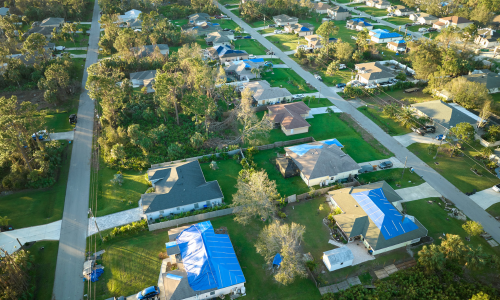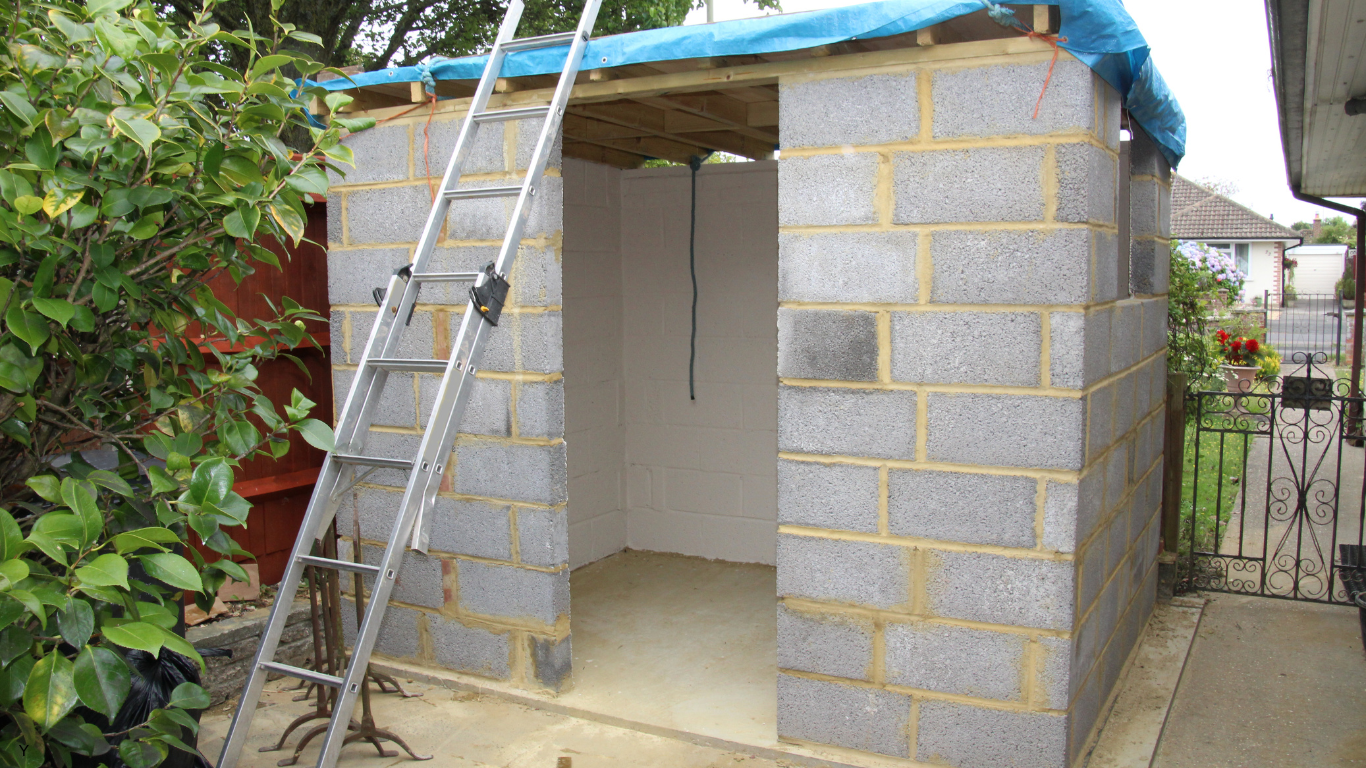New Law is Just the Latest Set of New Requirements for Roofing Contractors in Florida
Since 2019, roofing contractors in Florida have been subject to a litany of new regulations, including restrictions on advertising methods and certain disclosure requirements in their contracts. Yesterday, May, 2, 2024, Governor DeSantis signed HB 939, which becomes law on July 1, 2024. The new statute imposes new disclosure requirements on roofing contractors and gives homeowners new contract cancellation rights. Roofing contractors in Florida need to evaluate their contracts and contact their attorneys to ensure they comply with the new requirements.
Breaking Down HB 939
House Bill 939 makes multiple changes to 489.147, Florida Statutes, specifically:
Adding a specific definition for “residential property owner;”
Adding a cancellation period extending to the earlier of the start of work or 10 days following contract execution;
Adding a new disclosure that must be in the contract; and
Adding a requirement that cancellations must be in writing.
These are on top of the requirements for roofing contractors imposed in the last few years, which we will also briefly circle back to at the end of this article. But first, let’s look at the new statute, what and who it applies to, and how it affects roofing contractors. Here’s what’s in this article:
Who is a residential property owner under the statute
What is the new cancellation period
How to declared states of emergency affect the application of the statute
How long does the cancellation period last
What new disclosures are required for roofing contracts
How can a residential property owner cancel the contract
Context for the new statute and penalties for failing to comply
An up to date list of statutory requirements for roofing contracts in Florida
Who is a Residential Property Owner?
As an initial matter, the statute applies to contracts between roofing contractors and “residential property owners.” Residential property owner is defined as “the person who holds the legal title to the residential real property that is subject of and directly impacted by the action of a governmental entity. The term does not include a governmental entity.” Government entity is not defined by the statute.
While the definition on its face seems straightforward, the terms used are undefined and open the door to some ambiguities. For example, nothing in the statute clarifies what “impacted by the action of a governmental entity” means. Essentially every piece real property is impacted by a governmental entity in that the value of the property is taxed by a governmental entity and many properties have utility or other easements that grant governmental entities the right to access or otherwise “impact” the property.
Similarly, the term “legal title” creates ambiguity because it is not immediately clear whether this is intended to apply only to the fee simple owner of a property or could apply to people with other levels of ownership interest (i.e. a tenant, life estate, etc...).
The Florida House of Representatives Staff Final Bill Analysis provides some clarity by describing the effect of the new law as follows:
The bill requires that a contractor that enters into a contract to replace or repair the roof of a residential property during a declared state of emergency by the Governor must include specific language in the contract that allows the residential property owner to cancel the contract by the earlier of:
Ten days following the contract execution; or
The official start date that the work on the roof will commence.
This seems to suggest that the only action of a governmental entity that is relevant to the statute is a declared state of emergency by Florida’s Governor, and that it is the property owner, rather than a tenant or other party, to whom the statute applies. The analysis also makes clear that the statute only applies to residential properties and not commercial properties.
For the purposes of this statute, most roofing contractors might be best served by just assuming the party they are contracting with is the property owner, but this can be a dangerous assumption to make under Florida’s Construction Lien Law. One possible solution to this issue could be to include the required disclosures in the contract, but with a disclaimer that the disclosures only apply to the extent the person signing is the owner of the relevant property, and then confirm ownership in the public records before or after entering into the contract to determine if any further steps are needed to secure construction lien rights (i.e. sending a notice to owner). Another would be to confirm ownership in advance and then only include the disclosures if the actual property owner is entering into the contract.
Practically, given that most roofing contractors use the same form for the majority of their work, some sort of disclosure with disclaimers or check boxes to indicate applicability, is likely the best solution to allow one form to be used for multiple circumstances. Roofing contractors should contact their attorney to determine the best solution for their business.
What is the new cancellation period?
Once the statute applies to a contract, a new cancellation period applies. The first sentence of paragraph 6(a) of the new statute states that “[a] residential property owner may cancel a contract to replace or repair a roof without penalty or obligation within 10 days after the execution of the contract or by the official start date, whichever comes first, if the contract was entered into based on events that are subject of a declaration of a state of emergency by the Governor.” Let’s unpack that.
When Does a State of Emergency Apply?
Working backwards through the sentence, the cancellation provisions of the statute only apply “if the contract was entered into based on events that are subject of a declaration of a state of emergency.” While the statute seems to suggest that the events leading to the contract must be something triggering a declaration of a state of emergency, the staff analysis is broader and says that the effect of the bill is supposed to allow cancellations when a contract is entered into “during a declared state of emergency by the Governor.” This broader language is also contained in the new disclosure required by the statute, discussed in more detail below.
If the staff analysis is correct, then roofing contractors must comply with the statute for every residential contract when a state of emergency is in effect. That is problematic though, because states of emergency often last for months, if not more than a year following the actual emergency, and often cover vast areas of the state not directly affected by the emergency.
For example, Hurricane Ian made landfall just south of Boca Grande and Punta Gorda on September 28, 2022. Five days earlier, Governor DeSantis declared a state of emergency for Florida’s 24 southernmost counties, effectively covering from I-4 to Key West. This order was set to expire 60 days later. On November 21, 2022, Governor DeSantis extended the state of emergency for another 60 days. Every 60 days since, Governor DeSantis has extended the emergency order related to Hurricane Ian, including most recently on March 1, 2024. That extension will expire April 29, 2024, unless extended again.
The state of emergency for Hurricane Nicole affected 34 counties, and was enacted on November 7, 2022. Two days later, it was amended to include 11 more counties. On November 10, 2022, the day Hurricane Nicole made landfall near Vero Beach, the state of emergency was expanded to cover the entire state of Florida. On April 18, 2024, it was extended again for another 60 days.
Just based on those two examples, since 2022, the entire state has been under a state of emergency, despite many counties no longer actually feeling the effects of emergencies that caused the Governor to declare a state of emergency. Looking towards our upcoming hurricane season, if a hurricane hits the state in 2024, it is conceivable that every roofing contract entered into after the declaration of the relevant state of emergency could need to comply with the requirements of this statute through 2025 and probably into 2026, even if the contract is in a county only minimally impacted by the initial hurricane strike.
The plain language of the statute seems to cut against this interpretation, and require that the contract be entered into based on events that are subject of a declaration of a state of emergency. In other words, the contract to repair or replace a roof must be entered into because the need for the repair or replacement was caused by the emergency. This makes more sense, and eliminates the possibility that the statute would apply months or years later to a roof replacement that had nothing to do with hurricane damage. But it also is contradicted by the disclosure roofing contractors are now required to add to their contracts.
So how can contractors deal with this potential conflict in the application of the statute? One way could be to have property owners agree in the contract that the reason they are entering into it is not damage due to a hurricane or other declared state of emergency. To be clear, this is not language that could or should be used to circumvent the statute when it’s clear that the roof repair or replacement is due to a hurricane. But, if a roofing contractor is performing work in a county that experienced only minimal impact from an emergency and a substantial time has passed, such language could be useful in establishing that the contract is not being entered into based on the emergency. Again, contractors should consult with an attorney to determine the best options for their business and contract documents.
How Long is the Cancellation Period?
Assuming the statute applies, the residential property owner can cancel the contract without penalty or obligation within 10 days after execution of the contract or the official start date, whichever comes first. The second sentence of paragraph 6(a) of the statute indicates that the “official start date” is one of the following times:
The date the work that includes the installation of materials that will be included in the final work on the roof starts; or
The date a final permit has been issued; or
The date a temporary repair to the roof covering or roof has been made in compliance with the Florida Building Code.
In short, a residential property owner has either 10 days to cancel the contract, or the date of one of those three occurrences, whichever is earlier. Thus, if you sign a contract, and three days later obtain a permit to begin the work, then the contract is no longer cancellable. The other two options to shorten the 10 day cancellation period require a little more discussion.
Work that includes the installation of materials that will be included in the final work on the roof essentially means the installation of materials that will not be removed to accommodate the final roof repair or replacement. Florida’s Construction Lien Law has a similar concept in its definition of “furnish materials” to extend lien rights only to materials which are incorporated into the improvements being made, including normal wastage, though admittedly, the new statute does not refer to Chapter 713, Florida Statutes. However, interpreting the type of installation contemplated by the new statute with the requirements of Florida’s Construction Lien Law, would make sense and prevent work from being lienable but not compliant with the new statute and vice versa.
Certain temporary repairs may also end the cancellation period. The Florida Building Code sheds a little light on what could constitute covered temporary repairs. Roof covering is defined in the Florida Building Code, Residential, as “the covering applied to the roof deck for weather resistance, fire classification, or appearance.” Roof repair is defined in the Florida Building Code, Residential, as “reconstruction or renewal or renewal or any part of an existing roof for the purposes of its maintenance.” Finally, roof replacement is defined in the Florida Building Code, Residential as “the process of removing the existing roof covering, repairing any damaged substrate and installing a new roof covering.”
Temporary repairs to the roof or parts of it that are consistent with these definitions seem like they would likely end the cancellation period. What is unclear is whether the installation of a tarp to temporarily stop water intrusion into the residential property would qualify is a repair to the roof or roof covering in accordance with the Florida Building Code. The Florida Building Code, Residential does not contain references to tarps or temporary repairs to roofs, making it less likely that such a temporary mitigation would end the cancellation period under the new statute.
Ultimately, it will likely be up to Florida’s courts to draw the line between temporary repairs that end the cancellation period and those that do not. Contractors should take a conservative approach to determining whether a cancellation period applies and consult with counsel when questions regarding a cancellation by a homeowner arise.
What is the New Disclosure Required for Roofing Contracts?
In addition to being subject to the new requirements outlined above, roofing contractors also must add a new disclosure to their contract. The disclosure must be included in any contract that is subject to the statute, and be in bold, 18-point type, and appear immediately below the space where the residential property owner signs the contract. The disclosure is as follows:
You, the residential property owner, may cancel this contract without penalty or obligation within 10 days after the execution of the contract or by the official start date, whichever comes first, because this contract was entered into during a state of emergency by the Governor. The official start date is the date on which work that includes the installation of materials that will be included in the final work on the roof commences, a final permit has been issued, or a temporary repair to the roof covering or roof system has been made in compliance with the Florida Building Code.
To reiterate, this language must appear above the signature lines of the contract. Roofing contractors will need to modify their contract documents to include this language in that location for the contracts to which it applies. Roofing contractors who use separate sheets for disclosures or who have all of their contracts signed and delivered electronically will need to ensure they meet the requirements of the new statute, and that they update their documents or processes accordingly.
How Can a Residential Property Owner Cancel the Contract?
The new statute makes clear that a residential property owner “must send the notice of cancellation by certified mail, return receipt requested, or other form of mailing that provides proof thereof, at the address specified in the contract.” Under the plain language of the statute, it does not appear that email or verbal cancellations are sufficient. While the statute only states how cancellation must be sent, it does not clarify whether sending is sufficient to make the cancellation effective or whether it must be received. And though the statute does not require that the method of cancellation be included in the contract, it may be worthwhile for roofing contractors to include language relating to it in their contract so residential property owners understand that verbal or email cancellations may not suffice.
Additional Context for the New Statute
Outside of the specific requirements outlined above, there is some additional context needed for the new law. First, it is important to note that the new requirements are imposed in Chapter 489, Florida Statutes, which is the contractor licensing statute. Unlike the assignment of benefits statute which rendered noncompliant contracts unenforceable, contracts that do not comply with the new law are not per se unenforceable. But failure to comply with the new requirements could serve as the basis for a technical licensing complaint and can subject a contractor to up to a $10,000.00 fine.
Second, many roofing contractors likely already have three-day cancellation periods in their contract, to the extent they believe Florida’s Home Solicitation Sale statute applies to their sales. That may need to be removed, depending on the application of the new statute. Roofing contractors need to consult with their attorneys to determine how the new statute impacts their contracts and what language needs to be removed or altered as a result of this.
So What are the Requirements for a Roofing Contract Now?
In light of all of this, what are the total requirements for a roofing contract now? When layering the new statute onto the existing requirements for roofing contract, plus the requirements for construction contracts generally, the following list of requirements emerges:
The roofing contractor license number – 489.119(5)(b), Fla. Stat.
Construction lien law disclosure – 715.015, Fla. Stat.
Homeowners’ Construction Recovery Fund – 489.1425, Fla. Stat.
Prohibited Practices Disclosure – 489.147(5), Fla. Stat.
10-Day Cancellation Disclosure – 489.147(6), Fla. Stat.
Address where notices can be sent to contractor – 489.147(6), Fla. Stat.
Contractors should use the time between now and the July 1, 2024 effective date of the new law to revamp their contracts and prepare their business for any new procedures they need to implement to comply with the requirements.
About the Author
Jason Lambert is a Florida Board Certified Construction Attorney and Partner in the Construction Industry Practice Group at Hill Ward Henderson, in Tampa, Florida. He is also the founder and chief contributor to the Hammer & Gavel construction law blog. Jason focuses his practice on representing contractors, subcontractors, and materials suppliers throughout the state of Florida. Before law school, Jason spent a decade working in the construction industry, primarily as a project manager and operations director for both new construction and remodeling. He can be reached at jason.lambert@hwhlaw.com or 813-227-8495.






